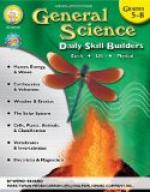[Illustration: FIG. 136.—Centrifugal pump with part of the casing] cut away to show the wheel.
[Illustration: FIG. 137.—Agriculture made possible by irrigation.]
The draining of land is also a matter of considerable importance; swamps and marshes which were at one time considered useless have been drained and then reclaimed and converted into good farming land. The surplus water is best removed by centrifugal pumps, since sand and sticks which would clog the valves of an ordinary pump are passed along without difficulty by the rotating wheel.
[Illustration: FIG. 138.—Rice for its growth needs periodical flooding, and irrigation often supplies the necessary water.]
186. Camping.—Its Pleasures and its Dangers. The allurement of a vacation camp in the heart of the woods is so great as to make many campers ignore the vital importance of securing a safe water supply. A river bank may be beautiful and teeming with diversions, but if the river is used as a source of drinking water, the results will almost always be fatal to some. The water can be boiled, it is true, but few campers are willing to forage for the additional wood needed for this apparently unnecessary requirement; then, too, boiled water does not cool readily in summer, and hence is disagreeable for drinking purposes.
The only safe course is to abandon the river as a source of drinking water, and if a spring cannot be found, to drive a well. In many regions, especially in the neighborhood of streams, water can be found ten or fifteen feet below the surface. Water taken from such a depth has filtered through a bed of soil, and is fairly safe for any purpose. Of course the deeper the well, the safer will be the water. With the use of such a pump as will be described, campers can, without grave danger, throw dish water, etc., on the ground somewhat remote from the camp; this may not injure their drinking water because the liquids will slowly seep through the ground, and as they filter downward will lose their dangerous matter. All the water which reaches the well pipes will have filtered through the soil bed and therefore will probably be safe.
But while the careless disposal of wastes may not spoil the drinking water (in the well to be described), other laws of health demand a thoughtful disposal of wastes. The malarial mosquito and the typhoid fly flourish in unhygienic quarters, and the only way to guard against their dangers is to allow them neither food nor breeding place.
The burning of garbage, the discharge of waters into cesspools, or, in temporary camps, the discharge of wastes to distant points through the agency of a cheap sewage pipe will insure safety to campers, will lessen the trials of flies and mosquitoes, and will add but little to the expense.




